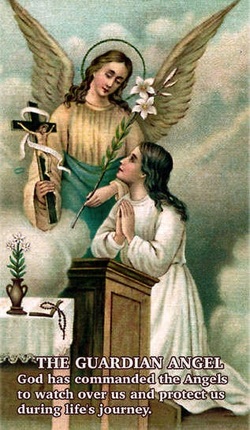
IT is an article of faith in the holy Catholic Church that God has not only created the world, but that He sustains and governs it; this preservation and ruling of the whole world and of each individual creature is called Providence. There are people who think that God is too great a Lord to busy Himself about the care of this world, that to do so is beneath His majesty; it was enough for Him to create the world, for the rest, He leaves it to itself or to fate, enjoys His own happiness, and, as it were, sleeps in regard to us. Thus think some, but only the ignorant and impious. Were He as these imagine Him, He would not or could not have aught to do with creation. If He could not, then He is neither all-wise nor almighty, if He would not, then He is not good; and if He knows nothing of the world, then He is not omniscient.
If we once believe that God created the world, (and what rational man can doubt it?) then we must also believe He rules and sustains it. Can any work of art, however well constructed and arranged, subsist without some one to take charge of and watch over the same? Would not the greatest of all master-pieces, the world, therefore come to the greatest confusion and fall back into its original nothingness, if God, who created it from nothing, did not take care of its further order and existence? It is indeed true that the method of Divine Providence with which God controls all things is so mysterious that, when considering some events, one is persuaded to admit a necessary fate, an accident, the course of nature, the ill will of the devil or man, as the fundamental cause. Yet in all this the providence of God is not denied, for nothing does or can happen accidentally, not the smallest thing occurs without the knowledge, permission, or direction of God. Not one sparrow shall fall on the ground without your Father. But the very hairs of your head are all numbered. (Matt. x. 29. 30.) Chance, fate, and luck are but the ideas of insane or wicked men, which even the more rational heathens have rejected, and the course of nature is but the constant, uninterrupted, all-wise and bountiful preservation and government of creation through God. The perverted will of men or of the devil is but' the instrument which God in His all-wise intention, uses to effect the good, for He knows how to produce good from evil, and, therefore, as St. Augustine says, "permits the evil that the good may not be left undone." If we peruse the history of our first parents, of Abraham, of Joseph in Egypt, of Moses, of the people of Israel, of Job, Ruth, David, Tobias, Esther, Judith and others, we will easily see everywhere the plainest signs of the wisest Providence, the best and most careful, absolute power, by virtue of which God knows how to direct all things according to His desire, and for the good of His chosen ones. The gospel of this day furnishes us an instance of this? Why did Christ go into the boat? Why did a storm arise? Why was He asleep? Did all this occur by accident? No, it came about designedly by the ordinance of Christ that His omnipotence might be seen, and the faith and confidence of His disciples be strengthened. Thus it is certain that God foresees, directs, and governs all; as Scripture, reason, and daily experience prove. Would we but pay more attention, to many events of our lives, we would certainly notice the providence of God, and give ourselves up to His guidance and dispensations. The Lord ruleth me, and I shall want nothing, says David. (Ps. xxii. i.) And we also, we shall want nothing if we resign ourselves to God's will, and are contented with His dispensations in our regard; while, on the contrary, if we oppose His will, we shall fall into misfortune and error. God must rule over us with goodness, or with sternness. He is no slumbering God. Behold! He shall neither slumber nor sleep, that keepeth Israel. (Ps. cxx. 4.)
- Goffine's Devout Instruction, Imprimatur 1880 -
 RSS Feed
RSS Feed